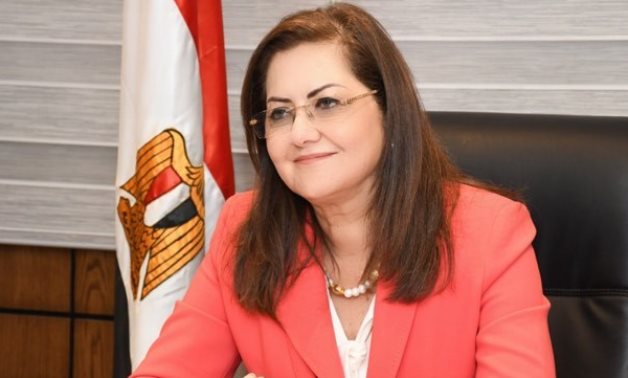
Minister of Planning and Administrative Reform Hala el Said - File Photo- press photo
CAIRO - 17 January 2023: Minister of Planning and Economic Development Hala El Said will take part in the 53rd edition of the World Economic Forum themed “Cooperation in a fragmented world” in the presence of 52 heads of state as well as finance and planning ministers.
The minister is due to head for Switzerland Monday to attend the world gathering in Davos, said a statement issued by her ministry on Monday.
The minister is due to meet with a number of ministers of economy and planning from various countries including Saudi Arabia and will hold meetings with CEOs of companies and banks taking part in the gathering.
She will meet with the administrative partner of BAIN company in Europe and the Middle East and the administrative manager of the Goldman Sachs Group, Dina Powell.
For decades, business leaders, billionaires and politicians have gathered in Davos, Switzerland, under the banner of forging ties that can help solve global problems.
It’s a glitzy exercise often criticized as out of touch. It also looks increasingly out of date as the biggest war in Europe since 1945 deepens splits in the world economy.
This year’s World Economic Forum is expected to draw a record 2,700 attendees, including German Chancellor Olaf Scholz, European Commission President Ursula von der Leyen, Chinese Vice Premier Liu He, South Korean President Yoon Suk-yeol and US climate envoy John Kerry.
Ahead of the forum, the International Monetary Fund (IMF) issued a warning over negative economic and social consequences that it expects to unfold if the global economy continues splitting off into smaller factions. An increasing number of international trade relations are said to be isolating more and more, particularly affecting countries with low GDPs in a negative manner.
The IMF argues that this tendency has been unfolding since the 2007–2008 financial crisis and has further increased with the pandemic and the war in Ukraine. Scepticism towards globalisation is continuously growing, notes the IMF.
According to NGO Oxfam, major corporations and the super rich are profiting from the ongoing crises. Over the weekend, some of Davos' neighbouring towns saw protests from globalisation opponents.
Comments
Leave a Comment